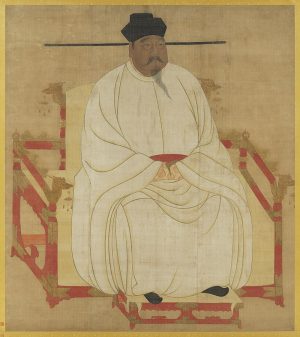The Song Dynasty (960-1276) was founded in 960 by Zhao Kuangyin, who took the throne name of Emperor Taizu. He ruled for sixteen years until his death in 976.
The dynasty had seventeen more emperors after Taizu and reigned for more than three centuries until its fall in 1279. The Song Dynasty is noted for its achievements in science, technology, and art.
Structure of the Song Dynasty Government
The government of the Song Dynasty operated under a centralized bureaucracy, with the emperor holding absolute power. In 963, Emperor Taizu replaced the old system of two separate, autonomous civil and military administrations with a single unified administration run by civilian authorities.
The Song Dynasty government was organized into an elaborate hierarchy, with each level having its own set of responsibilities. The emperor was at the top, followed by chancellors who headed separate departments. The Department of State Affairs dealt with implementing state policy while the Secretariat-Chancellery handled the drafting of policies and advising the emperor. Under the Department of State Affairs were six ministries: Rites, War, Revenue, Public Works, Justice, and Personnel. These were headed by individual ministers who were in charge of their respective areas. Below them were the regional governors, who were responsible for administering the provinces. The lowest level of government was the local level, which consisted of the village headmen and other officials.
Merit Bureaucracy and the Civil Service Examination System
The Song Dynasty government relied heavily on a merit-based bureaucracy, with officials selected based on their performance in the civil service examination. The exams covered various topics, including Confucian classics, history, literature, and law. It was extremely difficult, and less than 3% of test-takers pass every time.
The examination system was first established in the Tang Dynasty and continued to be used during the Song Dynasty. It encouraged Confucian learning and produced a class of highly educated officials loyal to the state. Based on their score, the passers would be allowed to become government officials at either the national, state or provincial level. Those who pass the highest level of the examinations receive the jinshi degree, which means “advanced scholar,” and can enter the higher levels of bureaucracy.
In theory, the examination was open to all men. In practice, however, only those from wealthy families could afford the time and resources needed to prepare for the exams. This resulted in a bureaucracy that was dominated by members of the elite class. Nevertheless, the existence of the examination system enabled a degree of social mobility, with some candidates coming from humble backgrounds and rising to high positions in the government. Despite their less prestigious backgrounds, their success in government service, literature, and arts would lead to a strengthening of their social standing and an increase in wealth.
The Scholar-Gentry Class
The merit bureaucracy and examination system led to a new class emerging, known as the “scholar-gentry.” They were called such because they were the scholars who had passed the exams and who were eligible to hold government positions, as well as the gentry who were wealthy and owned lands. They had a great deal of social and economic power and dominated the bureaucracy under the Song Dynasty. Considered to be a social group distinct from the commoners and the other nobility, they were comparable to the middle class in early modern Europe.
